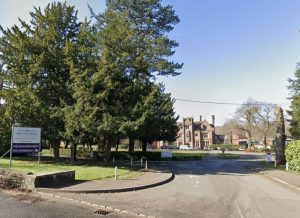An additional 27 homes will be built at an abandoned Surrey Hills mansion and stables to stop the heritage buildings falling into “rack and ruin”. In February 2023, Mole Valley District Council approved the creation of Audley Headley Court, a 112-home retirement community at the historic site. Now, following the October 1 meeting of the council’s development committee, the extra units will be added to the green belt land to make the project financially viable to the developers.
The plans were passed without objection from councillors who were echoing residents’ desire to see the old site returned to use and for its much-loved garden spaces to be opened to the public. David Preedy of Headley Parish Council said: “Headley Court is critical to our community both in terms of its history and the impact on the village.” He admitted the extra homes were not without controversy but that the parish backed the plans to put an end to the “years of disruption and significant decay to the heritage of our village and the gardens and the heritage buildings”.
The mansion house has been vacant since the departure of the Ministry of Defence, with the Jubilee Complex gardens used by the NHS and Surrey County Council during the pandemic. The estate has also been used to support Help for Heroes, those who fought in the Afghanistan war and more recently the NHS throughout the pandemic.
Developers said the refurbishment and reuse of listed mansion houses and stables, alongside sensitive reinstatement of the extensive grounds, will make much of the land publicly accessible for the first time. It would also help meet the need for specialist housing for older people as well as bring social and community benefits, the meeting heard.
The applicant’s agent said: “It has received no objections from the local community with whom we have engaged extensively since our first involvement with the site back in early 2022. We will continue to ingratiate ourselves into the local community as we have done elsewhere and bring the site back to its former glory.”
Councillor Roger Adams (Liberal Democrat, Bookham West) said: “This is a historic site and it would be a great shame to see it fall into rack and ruin.” He added: “It was a pity that green belt land must be taken but on the other hand if it must be taken to preserve the whole site and improve the whole site, then so be it.”
Headley Court. Credit Angle Property.
Related report:











